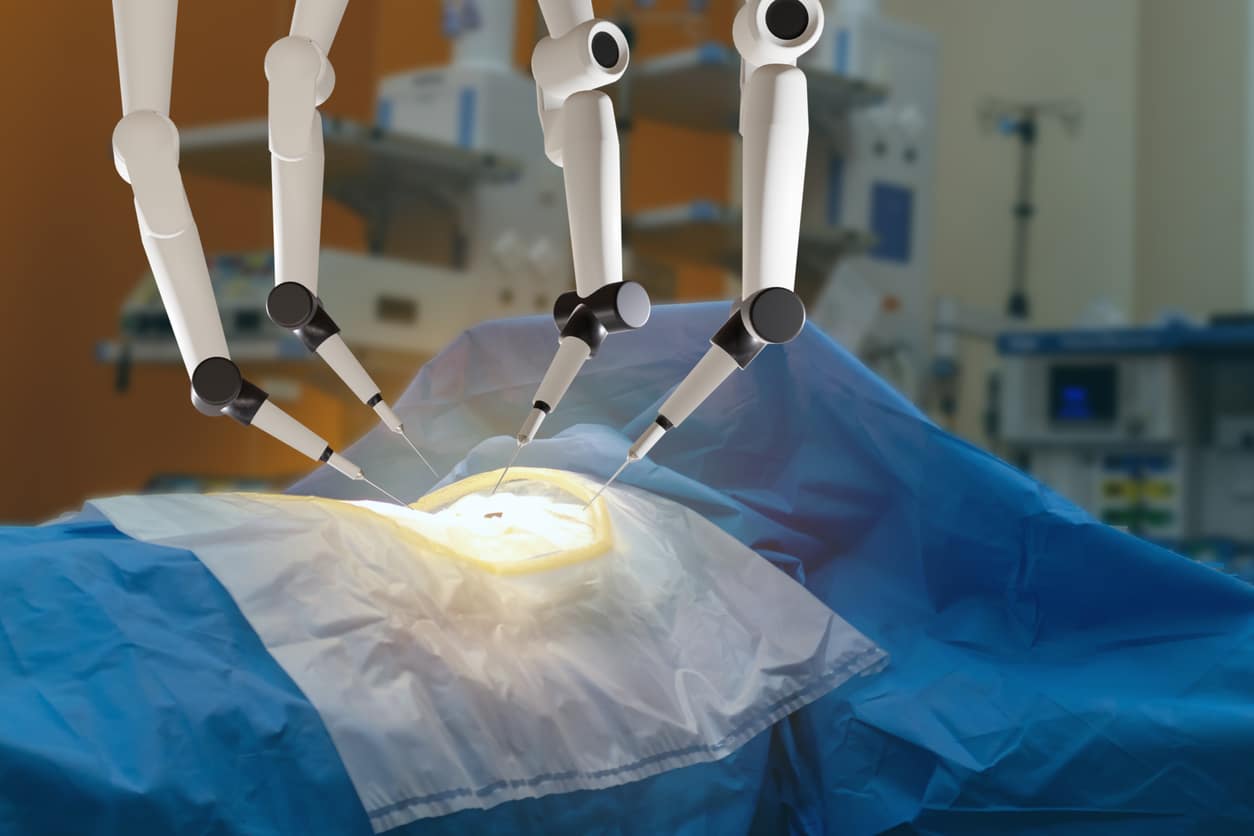An alternative to traditional surgery, a robotic hysterectomy is a cutting-edge technology utilizing the aid…

Preparing for Your Endometriosis Surgery: Dos & Don’ts
Endometriosis affects one in every ten women, and sometimes non-surgical remedies, like hormonal therapy or oral medication, aren’t effective. However, endometriosis surgery may be able to help you manage your symptoms and feel better than ever before.
If you have an upcoming surgery to treat endometriosis, you probably have many questions. Surgery can be overwhelming, but it doesn’t have to be! Your surgeon will discuss your unique pre- and post-operative instructions in-depth, but you should follow a few general guidelines no matter your procedure. In this blog, our team at Endometritis Treatment Center of America (ETCOA) discusses our top “do’s & don’ts” before and after surgery.
Dos: Before Your Surgery
Before surgery, we understand you may feel nervous or anxious. But there’s no need to worry! By following these tips from our team, you can reduce complications before, during, and after your surgery.
On the morning of your surgery, please do the following:
- Wear loose clothing: You’ll want to be comfortable pre and post-operation.
- Brush your teeth, but don’t swallow any water: We understand if you don’t want smelly breath, but it makes no difference to our team whether or not you choose to brush. If you want to, you can brush your teeth without swallowing water to ensure your stomach stays empty.
- Bring a list of all current medications, including dosages: Your team should already have a list of these medications, but this can be helpful for your team in postoperative care.
- Find a family member who can drive you to & from your operation and who can stay for the entirety of the procedure. Since you’ll be under general anesthesia, you won’t be able to drive home, so you’ll need a loved one to help you make it home.
- Bring your driver’s license & insurance card: We’ll need this information for our records.
- Follow your bowel preparation (if needed): Your physician may recommend a bowel prep to reduce the risk of complications, but this isn’t always necessary. If a bowel prep is advised, you and your surgeon will discuss it in-depth before surgery.
- Take any heart, blood pressure, breathing, or seizure medications: If you are on any essential medications, you can take them with a sip of water the morning of your surgery.
Don’ts: Before Your Surgery
Discuss all medications you take, even vitamins, during your consultation with your surgeon. Depending on the medication, you may or may not need to stop taking it leading up to the surgery. For example, if you’re on blood thinners, you must discontinue use for five days before surgery to avoid blood clots.
On the morning of your surgery, please:
- Don’t eat or drink anything after midnight: For your safety during general anesthesia, you must not eat before your procedure.
- Don’t wear any make-up, jewelry, contact lenses, body piercings, or lotions: These items can easily get lost in the operating room and carry bacteria that could get into your surgical site.
- Don’t take blood thinners (Coumadin, Plavix): Stop taking blood thinners for at least five days before your surgery.
- Don’t take Aspirin, Motrin, or anti-inflammatory medications: Similarly, other blood-thinning medications must be stopped five days before surgery.
- Don’t smoke tobacco: While it may seem obvious, smoking before surgery can impact your healing and increase your chances of developing pneumonia.
- Don’t bring any valuables with you: Valuables can easily get lost and misplaced before and after surgery.
Dos: After Your Surgery
It’s normal to feel fatigued after surgery. As your body heals, you’ll feel stronger each day. While you’re recovering from surgery, do:
- Resume your usual diet: Begin with clear liquids, then soft foods, and then solid foods. After surgery, your stomach may be sensitive, but you’ll quickly regain your appetite.
- Keep your dressing clean and dry: Your surgeon will give you specific care instructions, but keep your dressing as clean and dry as possible.
- Attend your follow-up appointment: Depending on the type of endometriosis surgery you had, your follow appointment can be anywhere from two to six weeks after surgery. Once your appointment is scheduled, we recommend making every effort to attend and ask any questions you may have.
Don’ts: After Your Surgery
After endometriosis surgery, following post-operative care is essential to reduce the recurrence of the disease. Your surgeon will explain in detail how you can best recover and heal, but there are a few general guidelines you should follow.
After your surgery, we recommend you:
- Don’t drink alcohol for at least two weeks or as long as you’re on prescription painkillers or medication: If you drink too soon after surgery, you can slow the healing process.
- Don’t drive or operate heavy machinery: Certain pain medications can impair your judgment, and any tenderness or soreness from the operation can leave you unable to react quickly if needed.
- Don’t make any significant decisions until 48 hours after your operation: Anesthesia can remain in your body for over 24 hours after administration. You won’t be back to yourself entirely until the anesthesia is out of your system.
Feel Confident in Your Healing
With these tips and guidance from your provider, you can feel confident before and after surgery. Any question—no matter how big or how small—is valid and valuable. Don’t hesitate to ask your surgical team any questions you may have about postoperative preparation, recovery, and more.
At ETCOA, we’re dedicated to patient care. From start to finish, we’re your partner in preparation, treatment, and healing. You’ll receive personalized support designed to improve your quality of life and help you manage your condition. Whether you have endometriosis, uterine fibroids, or another ailment, we’re here to help you at ETCOA.
Have More Questions? Don’t Hesitate to Call Our Team Today!
Proudly serving Lake Orion, MI, and surrounding areas, the team at Endometriosis Treatment Center of America is here for you. Surgical treatment may improve your quality of life if you suffer from pelvic pain, endometriosis, or another condition. Call us at (248) 397-9129 or contact us online to schedule an appointment!



